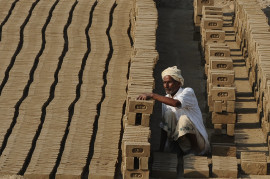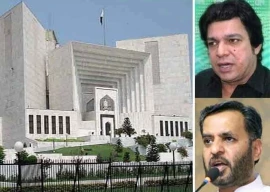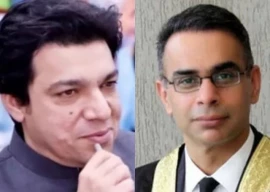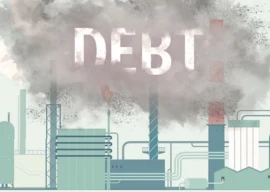
Celebrated Urdu novelist Qurratulain Hyder knew the art of immersive storytelling. Aag ka Darya (river of fire), perhaps the greatest Urdu novel ever written, is no exception. Spanning two thousand years of Indian history, it is a tale of four souls — Gautam, Champa, Kamal and Cyril — who appear and reappear through history, forming and reforming their relationships and providing a broader context to the partition. If there is a more beautiful Urdu ode written to the subcontinent’s messy history, its stunning geography and its syncretic culture, I have yet to see it.
If you look around today, you might be surprised how apt the theme of names and patterns repeating themselves ad nauseam is. As we will see later, it is the names of cities and the attitudes of the ruling elite that serve as the fixed variables. Let’s unpack the attitudes of the elite. The indifference of the South Asian states towards the plight of countless millions of their subjects and the cruelty and sheer opportunism of the elite class. To explore the subject further, I suggest you look up ‘extractive institutions’ in Daron Acemoglu and James Robinson’s Why Nations Fail.
The title of this piece is borrowed from William Dalrymple’s Anarchy: The Relentless Rise of the East India Company. To understand what is meant, perhaps this quote will do. “Company tax collectors were guilty of what was then described as the ‘shaking of the pagoda tree’ — what today would be described as major human rights violations committed in gathering taxes. Bengal’s wealth rapidly drained into Britain, while its prosperous weavers and artisans were coerced ‘like so many slaves’ by their new masters.”
This discussion, however, owes itself to a recent sitting I had with a few old friends. All of them are working men. All of them were full of complaints about rising inflation, ever-increasing at-source taxes which were automatically deducted from salaries and yet did not include their names in the active tax list and the reports of extractive measures that the authorities were then planning to deploy to balance books. I tried to explain to them the problem of rising circular debt. But livid as they were, they would have none of it. Whose fault it was, they asked. Why were they being punished for the incompetence of successive policymakers and implementers?
Perhaps another reference from Dalrymple’s book will help understand the opportunist streak of the South Asian elite. In the middle of the predatory if redundant policies of the Muslim ruling elite, you will also find mention of the credit networks of a family of Marwari Oswal Jain financiers “to whom in 1722 the Emperor had awarded the title the Jagat Seths, the Bankers of the World”. This banking family of India, rivalling Rothschilds in Europe, lent Rs400,000 annually to the EIC between 1718 and 1730, making the job of colonisation easy. Jagat Seths kept prospering with the company but could not survive beyond 1857.
Let us now return to our original theme. One name in the news these days is the port city of Surat in Gujarat. The recent episode is about an electoral victory. BJP candidate Mukesh Dalal was declared as the uncontested winner from there. But this is merely a passing reference. Surat is the site of the first factory established by the East India Company in India and its presidency before it was moved to Bombay. Surat, a huge hub of economic activity that now eclipses Bombay, sits some 164 miles away from Ahmedabad, home to two of the state’s most famous exports, Narendra Modi and Gautam Adani’s Adani Group. Adani Hazira Port Private Limited operates the Surat port. If you want to learn more about the symbiotic relationship between the two men and what the Gujarat model truly means, you need to go through a book, Business and Politics in India, edited by Christophe Jaffrelot, Atul Kohli and Kanta Murali.
If you are paying attention to the ongoing election in India, you might have noticed how the nation’s constitution has suddenly become a topic of debate. Congress party repeatedly claims that Modi, in his third term, plans to change the constitution and abolish reservations for the lower castes. Modi, Amit Shah and even RSS chief Mohit Bhagwat were all compelled to deny the charge. Modi went a step further and tried to deflect by accusing Congress of trying to take the reservations away from the backward castes and handing them to Muslims. While this accusation forced Congress to issue many clarifications, it does not seem to have achieved the objective. The country’s lower castes still seem wary of the BJP’s potential abolition of reservation. Why would that be? Communalism has always worked in the past. But the present misgivings have little to do with the BJP and the Sangh Parivar’s ideology and more with suspicions about the country’s most prominent business giant. Adani Group seems to control everything under the sun, and it has a ferocious appetite for expansion. So, every protest and pushback is about the company and others like it.
Last month, Sonam Wangchuk, the inspiration for 3 Idiots’ Phunsukh Wangdu, ended his 21-day-long hunger strike against the creeping influence of big business in Ladakh.
“The Changthang grazers, famous for producing Pashmina wool, are being forced to sell their animals because over 20,000 acres of grazing land was taken by industrialists to set up their plants... we do not want solar energy at the cost of our people’s livelihood and dislocation,” he claimed. “They are taking away our land because there are no safeguards available.”
Likewise, the farmers’ protest had similar concerns. So, it is perfectly rational for the scheduled castes, tribes and other backward castes that constitute a majority of the country’s population to be worried. When Modi was in Gujarat, he swiftly removed various climate-related safeguards to facilitate the rapid growth of big businesses. The first casualty in this growth saga was of the MSME sector. When demonetisation was introduced at the national level, the micro, small and medium enterprise was its first victim.
Had Adam Smith’s invisible hand been spotted anywhere in the region, people could rest easy. But South Asia is perhaps the worst place for a capitalist idea, let alone a libertarian one. Inequality and cruelty come naturally to South Asians. Recently, a video went viral where a man of higher caste associated with the ruling party was seen urinating on a tribal man. In this situation, India’s vulnerable only have the constitution. Congress’ Rahul Gandhi seems to have spotted the BJP’s vulnerability and appears to be pressing the advantage. Will it work? We will have to wait until June 4 to find out. But remember, the opportunism of the business and political classes invariably takes you to 1857.
Published in The Express Tribune, May 4th, 2024.
Like Opinion & Editorial on Facebook, follow @ETOpEd on Twitter to receive all updates on all our daily pieces.
































COMMENTS
Comments are moderated and generally will be posted if they are on-topic and not abusive.
For more information, please see our Comments FAQ